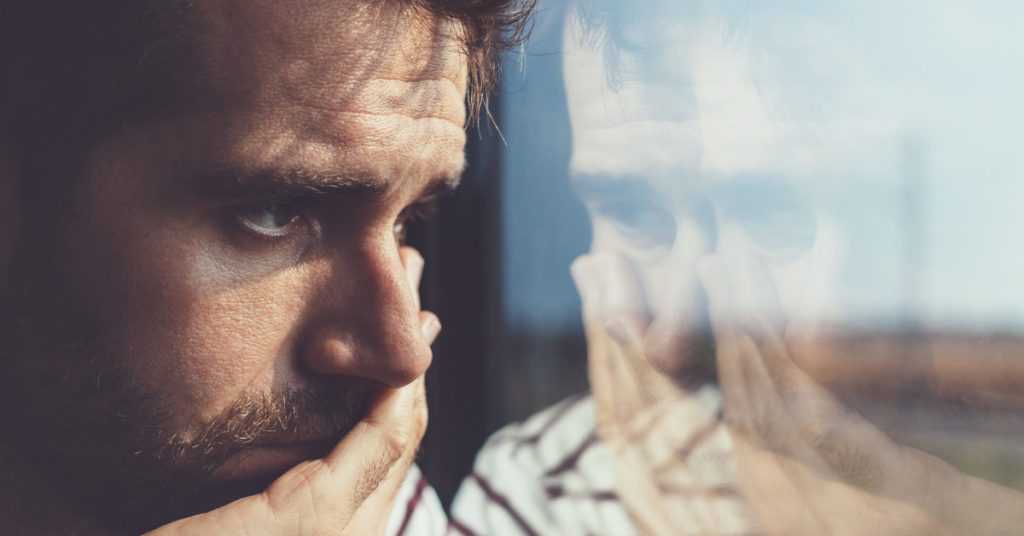Are you looking for a correlation between depression and religion? If yes, then you are in the right place. In the trials of life, believing in God is often presented as a chance to cope. Diseases are no exception. An American study that has been published in the Journal of Affective Disorders proves that faith would be effective against psychiatric illnesses. So, can faith really treat depression?
Depression and anxiety are two related illnesses that will affect many of us at one time or another during our lives. Periods of sorrow and worry are a normal part of life that can often be healed with prayer, patience, and positive thinking. However, we sometimes harbor these negative feelings to the point of developing an anxiety disorder or clinical depression.
So, before diving into this discussion, it is worth knowing “what is depression?” and then we can search for the correlation between depression and religion.
What is Depression?
Depression is a disease that consists of a mood disorder characterized by prolonged and severe sadness. This feeling is related to other symptoms and alterations in thinking and behavior. Depression can affect people of all ages, be it adults, adolescents, or even children.
Depression is one of the most common diseases in humans, especially women. Not only does it affect many people, but it is also a chronic disease that tends to appear in the form of episodes. This makes it the leading cause of disability globally, both in women and men, ahead of cardiovascular diseases and cancer. It is estimated that 3,000 people commit suicide every day due to the depression they suffer. This involves losing life for the person who commits suicide and a significant emotional burden for their family and friends.
What are the Symptoms of Depression?
The symptoms of depression are:
- Irritable or low mood
- Difficulty falling asleep or excess sleep
- Tiredness and lack of energy
- The feeling of hopelessness and abandonment
- Loss or increase of appetite
- Loss of pleasure in physical and mental activities that make you happy
- Difficult to focus
- Thoughts of death or suicide
- Becoming withdrawn or isolated
Symptoms of depression in children may be different from those in adults. It is essential to check your child’s school performance, sleep, and behavior for possible symptoms of depression. To distinguish a depressive disorder from any temporary state of sadness, a psychiatrist’s diagnosis is necessary.


Learn more about the effects of depression here.
Causes of Depression
There are different types of causes adding their effect in clinical depression or anxiety disorder. It can often be passed from parent to child due to genes, learned behavior at home, or the environment. It can also be triggered by a stressful or unhappy event in life. Before finding any relationship between depression and religion, one should know about its causes. It means whether they are physical or behavioral (includes belief).
Factors that can cause depression include:
- Alcoholism or drug addiction
- Conditions, such as cancer or long-term chronic pain
- Stressful situations or events in life: loss of employment, death of a relative, and divorce.
- Pregnancy: postpartum depression
- Social isolation
Types of Depression
There are different types of depressive disorders depending on their causes:
- Endogenous depression: It is triggered by genetic or biological factors, hormonal or neurotransmitter alterations.
- Reactive depression: It is generated by poor adaptation to external circumstances and environmental factors.
- Minor depression or dysthymia: There are only a few symptoms of minor intensity, usually related to personality problems and prolonged stress.
- Masked depression: Manifested by organic and functional discomfort (somatizations), such as cardiovascular disorders or dizziness.
Difference between Depression and Sadness
Major depression, understood as an illness can be distinguished from sadness and mood swings that respond to problems in daily life. Sadness is one of the six basic emotions of a human being. Thus, we all experience it at different times in our lives. Depression is a severe illness that is not just being sad. For the diagnosis of Major Depressive Disorder, a series of clinical criteria must be met. The cardinal symptoms are a low mood for most of the day and loss of interest or pleasure in everyday activities. To be considered significant depression, the duration of these symptoms must be longer than two weeks.
Situations of mourning for the loss of a loved one often lead to significant suffering. Still, they do not usually induce a depressive episode. Grief would thus be an example of normal sadness in these cases. It is still true that grief can cause a depressive episode, especially in people vulnerable to depression. In these cases, treatment is necessary, and the evolution of the grief will be much more complicated.
Controversies can sometimes exist when drawing the line between a normal sad response and significant depression. Depression is underdiagnosed and under-treated many times. This means that many sorrows go untreated and even those that have been diagnosed receive poor treatment. This is due to three leading causes:
- A shortage of resources
- To a lack of trained professionals
- The persistence of a social stigma
So, you are now well aware of depression. Let’s start with the main topic of finding a correlation between depression and religion.
Correlation between Depression and Religion
Evidence supports the idea that there is a strong connection between depression and faith. Intense devotion is also associated with better mental health. Religions try to give us direction for our lives. Usually, the question humans ask themselves is: what is my purpose here on Earth? What should I do here to be happy? Depression is very much about a life where you are not living to your fullest potential. In this sense, religions try to address the lack of courage and sadness that you are not living according to certain habits and codes of conduct.
Thus, religion appears to the human being as a way to obtain a purpose in life. A method for us to fill our feeling of emptiness that at some point we are going to separate from our bodies, we are going to leave planet Earth. We are going to find ourselves again in another plane of existence. According to many religions, the after-death fact would be related to the attitudes and actions during our lifetime.
This evidence supports the idea that there is a strong connection between depression and religion in curing this disease. Moreover, strong devotion is also associated with better mental health. Research has shown that faith makes it easy to respond better to treatment for depression or repel suicide attempts. However, believing in God can not always prevent you from having dark thoughts or being depressed because everyone does not have the same level of religiosity.
Religion as a Therapeutic Element
Religions emerge as a therapeutic element for depression because most of them were founded on an idea of community and an idea of shared suffering. In this sense, all of us are suffering from some evil on Earth and, by following some rules, laws, and commandments, our life could be a little less painful. And after our death, we could achieve some paradise and reward based on a good life here on Earth.


Religion as a Protective Factor against Depression
The point is that religion is based on forming a community and involves social contact with other people. So, it affects your ability to communicate with other people, whether while reading, singing a song, practicing charity, etc. This social aspect of contact with other people ends up being a protective factor against developing depression. But of course, that’s not all that religion can do for us! Because it also assumes that there are habits that can get in our way and practices that can help us. Most of the time, religions condemn excesses and value moderation.
Conciliation between Depression and Religion
The reconciliation between depression and religion comes as follows: more and more researchers, both neuroscientists and psychologists, have been trying to assess the real benefit of practicing a religion. The results of the survey have been exciting. What has been shown is that there is no specific religion that can help you more or less quickly get out of or into depression.
However, you can promote your spirituality and get in touch with forces that you perceive to be much bigger than you are as a way for you to shield yourself. Because in this process, you can develop more resilience to deal with mental suffering and get out of a situation like depression and anxiety more easily. So, if you’ve been asking yourself, “Can religion help me get rid of this suffering? “Yes, it can!
Diversify
However, it is not interesting that you bet all your chips on just one type of help. All over the world, you will find religions, Mosques, churches, and temples that promote the cure of depression in a few moments—individuals who promote themselves as mental health professionals and manage to cure depression in a few hours.
And I ask you to be very careful with this idea of a miracle cure! Because science shows us a good relationship between depression and religion, but when we’re dealing with a mental disorder, it’s good that you have all the tools at your disposal (including having psychiatric and psychological care).


Find more ways of Treating Depression here.
Believing Psychologists: Does my Psychologist have to be of the same religion as me?
To answer this question, I will bring the psychologist’s professional code of ethics. Because within the code of ethics, as written in 2020, the psychologist will not induce religious beliefs in their clients.
So, as human beings, these professionals have every right to develop their spirituality through whatever religion they want. However, during psychological care, the professional cannot instill or encourage religious strategies that are not consistent with the patient’s personal beliefs.
If you are looking for a psychologist and insist that he is of the same religion as you, that’s fine; that’s a personal choice. However, any professional in psychology or psychiatry who sees you and somehow tells you that your religion is wrong or that you should start following another religion is violating the code of ethics.
Be very careful because these professionals, in most cases, are disconnected from both the code of ethics and the most up-to-date practices in psychology. In short, religion and psychology need not be a clash. But you can, either through faith or psychology, get rid of the 21st-century disorder known as depression.
Conclusion on Depression and Religion:
Depression occurs due to a feeling of helplessness. You must accept the idea that you are not in control but sow the seed; let the unforeseen winds bring the rain. Work on what you can do: you can plant the source and make the right decisions. Your depression is one type of illness among many others. Because we can see and feel diseases of the body, while those of the mind cannot be seen or touched. That is why it is difficult for others to understand or comprehend your problem. You wouldn’t say that someone doesn’t have a headache because you can’t feel it. The same applies here. Depression deserves no less recognition than a headache.
Depression and religion are antiparallel. Belief is the most excellent cure. No pill, counseling session or coping technique can compare to a strong belief in God. This is the reason we are healthy. You will always have something to lean on, a reason to direct your request to Him. As long as you believe in a living and Merciful God, you will have reason to be optimistic.
You can consult the best psychologists in Pakistan to discuss your hormonal issues, as hormonal imbalance is the main reason behind unwanted facial hair in females.
If you are looking for a good health specialist to treat your health issues, you can find them on Marham.pk online consultation platform. You can call on the helpline 0311-1222398 or use the Marham.pk mobile app to find, book, and consult the best health specialists of Pakistan.
Can’t Find The App?
Android Users:
https://play.google.com/store/apps/details?id=controllers.marham.marhammed&hl=en
Drop a review for us at Playstore if you’ve had a good experience!
iPhone Users:
https://apps.apple.com/pk/app/marham-find-a-doctor/id1095243102
Stay Home. Stay Safe!

